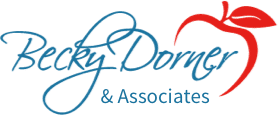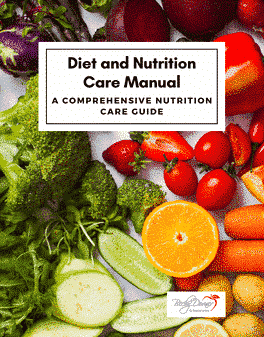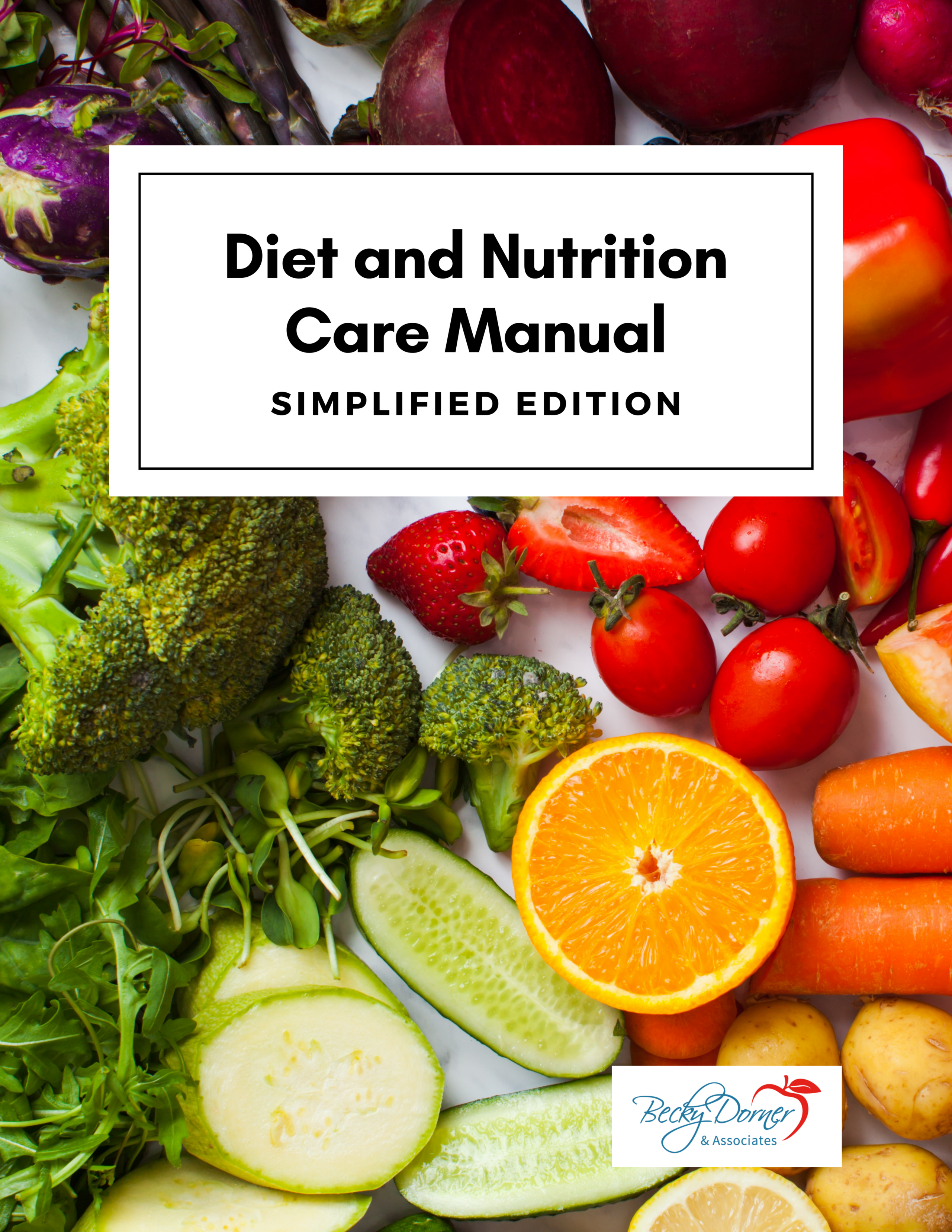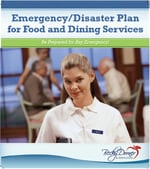Join thousands of health care facilities nationwide that use our manual to guide nutrition care and menu choices! This has been our best-selling manual for over 20 years!
2024 Edition is Shipping Now! We are thrilled to announce the launch of the new edition of our highly anticipated 2024 Diet and Nutrition Care Manual! Please note that the license for use is for one facility. If you plan to use the manual in multiple facilities, please purchase a manual for each one. If you plan to purchase 10 or more copies, please contact us for bulk order pricing.
Great for sub-acute, transitional care, nursing facilities, or acute care. Includes guidelines for evidence-based practice. Use this best-selling resource as an evidence- based reference to provide nutrition care, interpret diets, define physician diet orders, write menus, and meet federal regulations. Easy to use tools, charts and guidelines! Approximately 450 pages. Revisions include:
- New American Diabetes Association Guidelines
- New Academy Evidence Analysis Library (EAL) adult weight management systematic review
- Addition of the Global Leadership Initiative on Malnutrition (GLIM)
- Whole new chapter on Cancer Prevention and Treatment
- New KDOQI guidelines
- Most recent updates from the National Pressure Injury Advisory Panel (NPIAP)
- Revisions and comprehensive information on each disease state/condition
- Revised sample menus for all diets.
- Revised International Dysphagia Diet Standardisation Initiative or IDDSI information (the 2019 chapter on Consistency Alterations is available to those who have not yet transitioned)
- 2020-2025 Dietary Guidelines for Americans and MyPlate (with updates to diet guidelines)
- Updates as needed to all sections to ensure the manual is compatible with the current standards of care, and more!
Click on “Sample Pages” above for the full Table of Contents.
Note: This manual is updated and re-released every 2-3 years to include the most recent evidenced based research and national and international guideline releases related to nutrition care.
Need to order multiple copies? Contact us for information and discounts if you plan to order more than 10 copies.
Coming Soon! 2024 Simplified Diet and Nutrition Care Manual and CPE Course for the Comprehensive Edition
Chapters include:
- Regular Diet and Alterations: Liberalized/individualized diet for older adults, altered portion sizes, nutrition supplementation, finger food diet, food intolerance/allergy, low lactose, gluten free diet, vegetarian diets, Kosher diet, full liquid diet, and clear liquid diet.
- Dysphagia: International Dysphagia Diet Standardisation Initiative (IDDSI), IDDSI Level 6: Soft and Bite-Sized, Level 5: Minced and Moist, Level 4: Pureed/Extremely Thick, Level 3: Liquidised/Moderately Thick, Level 2: Mildly Thick, Level 1: Slightly Thick, guidelines for serving thickened liquids, and positioning tips.
- Weight Management: practice guidelines, strategies, recommended diet patterns, obesity in older adults, FDA approved devices and surgical treatment of obesity, medications, medical nutrition therapy, Calorie Restricted, and Calorie Specific diets.
- Cardiovascular Health: Hypertension, recent cardiovascular disease guidelines, lifestyle recommendations, medical nutrition therapy, older adults and diet and lifestyle changes, healthy eating patterns including DASH, Mediterranean, and 2 gram sodium diet.
- Diabetes: Gestational diabetes, preventing complications, goals of MNT, menu planning, total diet and lifestyle approach, physical activity, nutrition care for those requiring insulin, diabetes technology, continuous glucose monitoring, enteral nutrition blood glucose monitoring, hypo/hyperglycemia, medications/insulins, Carbohydrate Counting, Consistent Carbohydrate Diet and consistency-altered versions, Clear Liquid Diet for diabetes, food choice values, and meal replacements.
- Gastrointestinal Conditions: The gut microbiome, GI symptoms/conditions, intestinal ostomies, constipation, diarrhea, cramps, heartburn, bloating, nausea, vomiting, Low FODMAPS diet, High Fiber diet, and Low Fiber Diet.
- Kidney Disease: 5 stages of CKD, KDOQI 2020 Clinical Practice Guideline, MNT for kidney disease, estimating nutritional needs, nutrition and fluid restriction guidelines, lowering potassium, potassium levels in foods, hyperphosphatemia, high phosphorous foods, menu planning tips, diets and nutrition information for each stage of CKD including Liberalized Renal Diet, Renal Dialysis Diet, and Liberalized Renal Diet for Diabetes, and oral, enteral and parenteral nutrition supplementation.
- Specific Diseases: Alzheimer’s/dementia, hepatic disease, HIV/AIDS, osteoporosis, PKU, and pulmonary disease.
- Specific Conditions: Anemia, dehydration, failure to thrive, gout, malnutrition, palliative care, pressure injuries, sarcopenia, and unintended weight loss.
- Cancer Prevention and Treatment: Staging, risk factors, screening, key symptoms, cancer prevention – nutrition and lifestyle recommendations, medical treatment, MNT for nutrition impact symptoms, MNT for cancer treatment, nutrition screening, nutrition assessment, estimating nutritional needs, nutrition interventions, physical activity, nutrition support, palliative care, special considerations, monitoring and evaluation, nutrition and cancer survivorship, controversies in prevention, treatment and survivorship.
- Nutrition Support: Guidelines for enteral feeding, documentation, medication administration, calculating adequate flushes, selecting enteral formulas, disease specific formulas, determining feeding schedules, calculating volume and administration of feeding, refeeding syndrome, transitioning to oral foods, complications, end of life nutrition, discontinuing enteral feeding; parenteral nutrition, indications, potential complications, comprehensive nutrition assessment, nutrient requirements, macronutrients, vitamin/trace element requirements, electrolyte guidelines, delivery of PN, documentation/monitoring for PN, discontinuing PN, and calculation charts.
- Pregnancy and Lactation: Nutrient needs, prenatal vitamin/mineral supplements, key nutrients needed, herbal and botanical supplements, fortified foods, multiple gestations, pre-gravid obesity, GI issues, weight gain guidelines, environmental/dietary issues, losing weight after delivery, lactation, medical conditions/allergies, gestational diabetes, hypertension, best sources of vitamins/minerals, vegetarian nutrition, and food safety during pregnancy/lactation.
- Pediatric Nutrition: Breastfeeding, formula feeding, solid foods, foods to avoid in first few months, normal growth in the first year, feeding guide, children/adolescents estimated calorie needs by age, nutrition for toddlers, preschoolers, school aged children and adolescents, food allergies, vegetarian diets, disordered eating, obesity, BMI, health risks of obesity, diabetes, and physical activity.
- Appendix: Recommended dietary patterns for good health, menu checklist, foods and equivalents, food sources of specific nutrients, calcium, vitamin D, dietary herbs/supplements, food safety, physical activity, nutrition screening and assessment, nutrition focused physical exam, adjusting weights for amputees, unintended weight loss, BMI, nutrient needs calculations, equations for calories/protein/fluids, nutritional needs during stress, sample nutrition intervention program, and commercial products available to provide supplemental nutrition.
Click on “Sample Pages” above for the full Table of Contents.
Author/Editor:
Becky Dorner, RDN, LD, FAND is widely known as one of the nation’s leading experts on nutrition, aging and long-term health care. An extensively published author and experienced speaker, Becky is Founder/President of Becky Dorner & Associates, Inc., which provides a broad library of credible continuing education (CE) programs and nutrition resources. She was also Founder/President of Nutrition Consulting Services, Inc., whose dedicated team of RDNs/NDTRs served health care facilities in Ohio from 1983-2020.
Becky has published more than 300 health care articles, manuals and CE programs; presented and/or hosted more than 700 CE programs for national, international and state professional meetings in 5 countries and 50 states. Her free email magazine keeps 30,000 health care professionals up to date on the latest news in the field. An active leader, she has held more than 20 board positions on national and state professional associations including the Academy of Nutrition and Dietetics (Academy), Academy Foundation and the National Pressure Injury Advisory Panel. Honors include Academy Medallion Award, Fellow of the Academy of Nutrition and Dietetics and the Academy Award of Excellence in Business and Consultation.
Contributing Editor:
Liz Friedrich, MPH, RD, CSG, LDN, FAND, NWCC is a registered dietitian and president of Friedrich Nutrition Consulting in Salisbury, NC. The company provides a variety of nutrition consulting services with a focus on gerontological nutrition.
Liz is Board Certified as a Specialist in Gerontological Nutrition and is Nutrition Wound Care Certified. She has authored and co-authored numerous articles in journals and magazines and textbook chapters and has served as an evidence analyst for the Academy of Nutrition and Dietetics (Academy) Evidence Analysis Library. She is an accomplished speaker on topics related to both older adults and wound healing. Liz has held numerous national and state positions for the Academy, Nutrition Entrepreneurs Dietetic Practice Group and the North Carolina Academy of Nutrition and Dietetics. She is the recipient of two NCDA awards, the Recognized Young Dietitian of the Year and the Member of the Year.
Reviewers/Contributors:
We would like to thank all of the professionals who dedicated their time and expertise to current and past editions of this manual (see the manual for a full list). We hope that the individual residents, patients, and/or clients that you work with will benefit as a result of their hard work.







Reviews
There are no reviews yet.